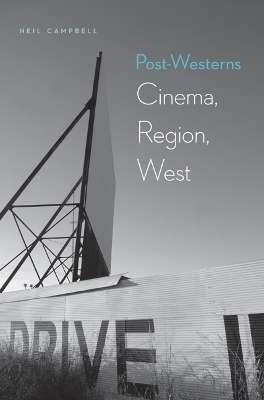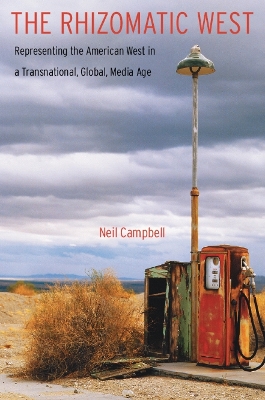Postwestern Horizons
2 total works
During the post-World War II period, the Western, like America’s other great film genres, appeared to collapse as a result of revisionism and the emergence of new forms. Perhaps, however, as theorists like Gilles Deleuze suggest, it remains, simply “maintaining its empty frame.” Yet this frame is far from empty, as Post-Westerns shows us: rather than collapse, the Western instead found a new form through which to scrutinize and question the very assumptions on which the genre was based. Employing the ideas of critics such as Deleuze, Jacques Derrida, and Jacques Rancière, Neil Campbell examines the haunted inheritance of the Western in contemporary U.S. culture. His book reveals how close examination of certain postwar films—including Bad Day at Black Rock, The Misfits, Lone Star, Easy Rider, Gas Food Lodging, Down in the Valley, and No Country for Old Men—reconfigures our notions of region and nation, the Western, and indeed the West itself.
Campbell suggests that post-Westerns are in fact “ghost-Westerns,” haunted by the earlier form’s devices and styles in ways that at once acknowledge and call into question the West, both as such and in its persistent ideological framing of the national identity and values.
Crossing the concept of "roots" with "routes," this book shows how notions of the West - in representations ranging from literature and film to photography, music, and architectural theory - give expression to ideas about identity, nationhood, and belonging in a world increasingly defined by movement across time and borders. "The Rhizomatic West" offers a new vision of the American West as a hybrid, performative space, a staging place for myriad intersecting and constantly changing identities.

